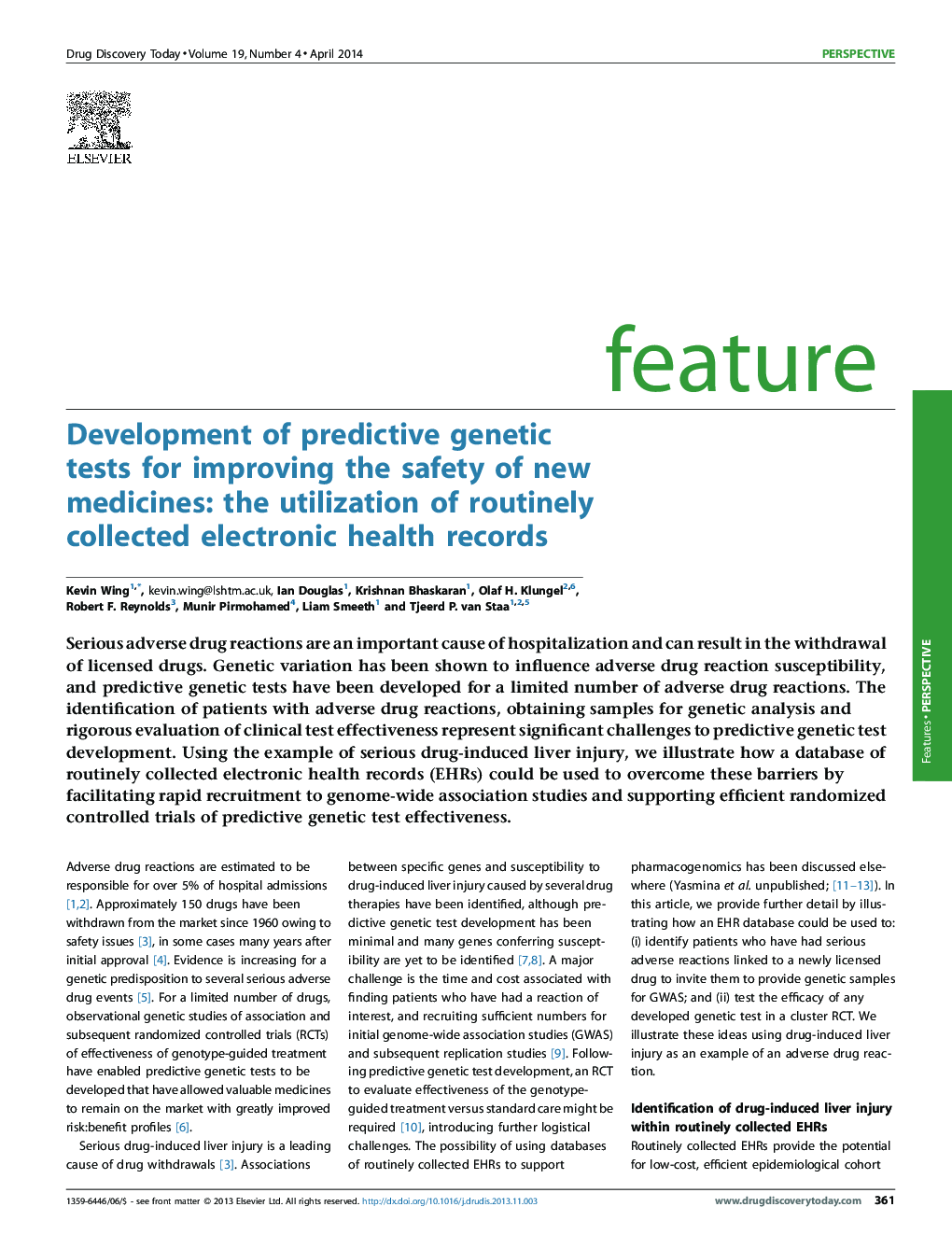| Article ID | Journal | Published Year | Pages | File Type |
|---|---|---|---|---|
| 2081279 | Drug Discovery Today | 2014 | 6 Pages |
•Serious adverse drug reactions can lead to the withdrawal of licensed drugs.•Predictive genetic tests exist for a limited number of adverse drug reactions.•Obtaining patients and genetic samples for test development is challenging.•Electronic health record databases could be exploited to overcome these barriers.•Genetic test effectiveness could also be assessed using these databases.
Serious adverse drug reactions are an important cause of hospitalization and can result in the withdrawal of licensed drugs. Genetic variation has been shown to influence adverse drug reaction susceptibility, and predictive genetic tests have been developed for a limited number of adverse drug reactions. The identification of patients with adverse drug reactions, obtaining samples for genetic analysis and rigorous evaluation of clinical test effectiveness represent significant challenges to predictive genetic test development. Using the example of serious drug-induced liver injury, we illustrate how a database of routinely collected electronic health records (EHRs) could be used to overcome these barriers by facilitating rapid recruitment to genome-wide association studies and supporting efficient randomized controlled trials of predictive genetic test effectiveness.
